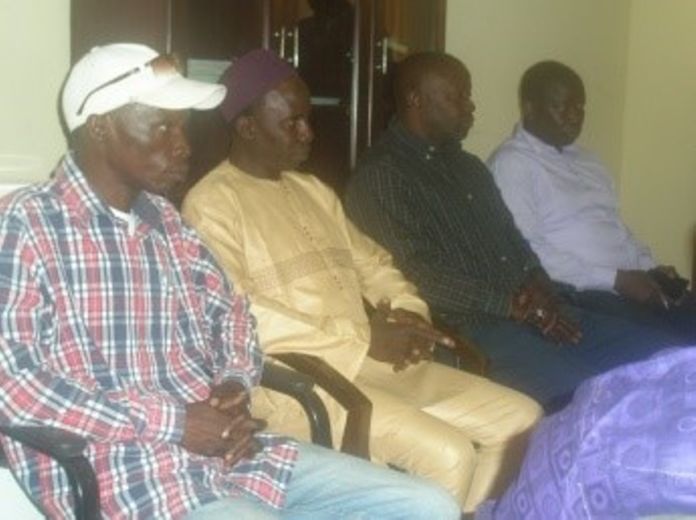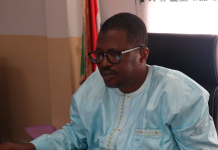By Momodou Jarju
In continuing their five day tour, the National Assembly Standing Committee on Defense and Security visited security agencies in the country, to receive their complaints and concerns on their working conditions. And the plethora of concerns from the Officers range from insufficient communication equipment tp insufficient feeding, poor accommodation, low incentives or sometimes none at all, on risk allowances etc. amongst others.
On Wednesday February 26th 2020, the committee called on the Governor of West Coast Region (WCR) in Brikama.
The Chairperson of the Committee who is also the Deputy Speaker of the National Assembly Momodou L.K. Sanneh, said the courtesy call to the Governor of the Region was to inform him about their tour of security agencies within WCR.
Deputy Governor of WCR Musa Suso, welcomed the NA Committee and gave his blessings to their mission, and from there, the committee headed to the National Intelligence Agency’s (NIA) Tanji office.
Deputy Speaker Sanneh informed the officers of the Tanji NIA Office of their mandate to embark on a fact-finding mission to ascertain the situation of security units within the Kanifing Municipality and West Coast Region (WCR) and their unit was no exception.
Hon. Sanneh said they intended to have a fair discussion with the officers to know their challenges as well as success stories in order to be able to prepare a comprehensive report which will later present at the plenary session of the National Assembly, for possible consideration and action.
He said the committee is not promising to solve their concerns but hopes that by the next budget preparation, some of the concerns they raise will be factored.
Hon. Saikouba Jarju asked several questions ranging from the mode of operation of the agency, to the structures of the office and a bit of its history as a unit.
Alhagie Fatty, the Commanding Officer of the Agency’s office in Tanji said their office was inaugurated in 2009 to tackle illegal migration and other crimes; that their operations coverage starts from Kartong to Bakau; that they have fifteen operatives both on coastlines as well as the interior of the country.
On their challenges in Tanji, Fatty said security officers are not adequately remunerated and called for this to be looked into with urgency.
Hon. Salifu Jawo asked when they apprehend people they hand them to other security forces and Officer Fatty responded in the affirmative; that since the advent of the new dispensation, their mode of operation is based on intelligence collection which information is subsequently sent to relevant security units to act on. Fatty said the frequent crimes they encounter is increasing and that this range from house break-ins to illegal migration, illegal fishing, rubbery and drug trafficking. He said illegal fishing is difficult to control because they do not have the right equipment; that the fifteen staff they have is not enough to deal with these issues. Deputy Speaker Sanneh told the Officers that they are partners in development and thanked them for the reception.
The meeting ended and the delegation continued to the Kartong Army Post. The Officer Commanding at the said Post Captain Adama Saidy, informed the Committee that he has ninety six personnel under his command who patrol the area of Tanji, Gunjur Berinding, Sifoe, Madinaba up to Kartong. On the issue of impress, Captain Saidy said this is always received late.
“I do have some impress here. But before I have this impress was almost at the end of the month. The impress is supposed to be paid at the first day of the month. Now impress is paid at the end of the month. That is to say before the impress is received, I had already borrowed things from the shop. I would be going around to borrow so that I can eat,” he said.
Like other security entities, Captain Saidy said they have one vehicle to take care of their daily mobility and this hinders their accommodation. He said three thirds of villagers rely on their medical services; that people have the concept that without their medicines, they will not be cured.



















